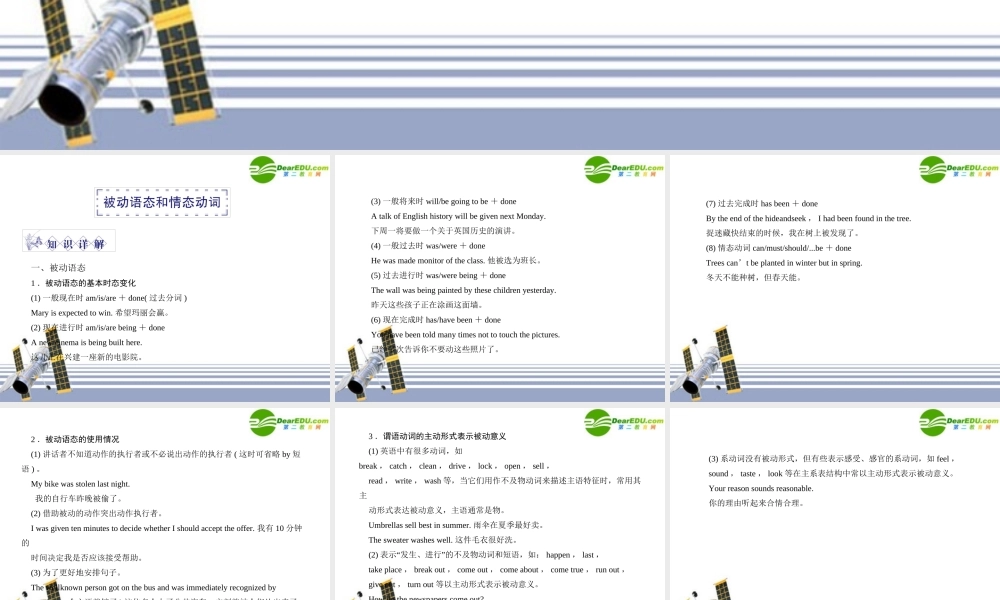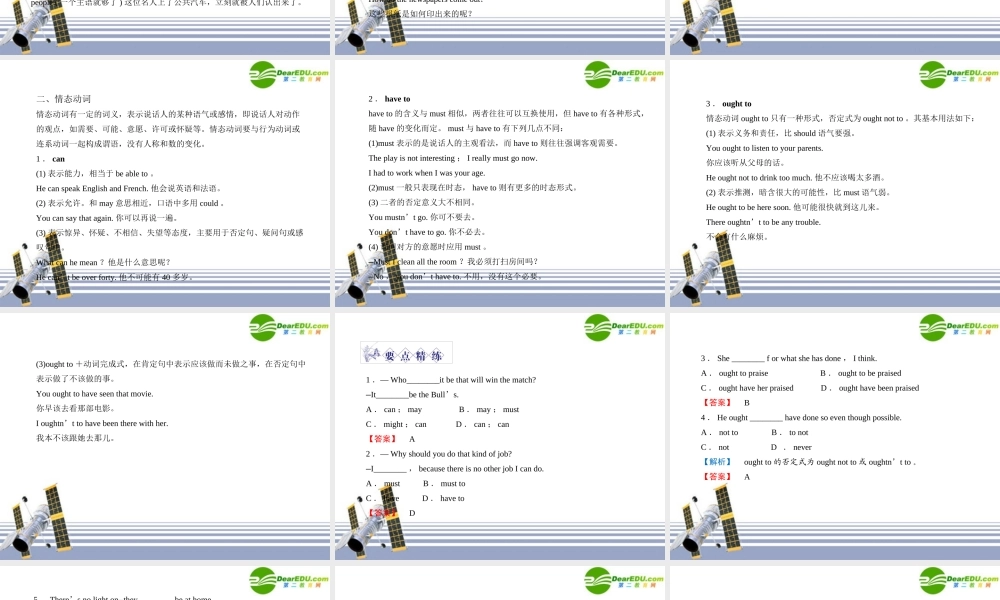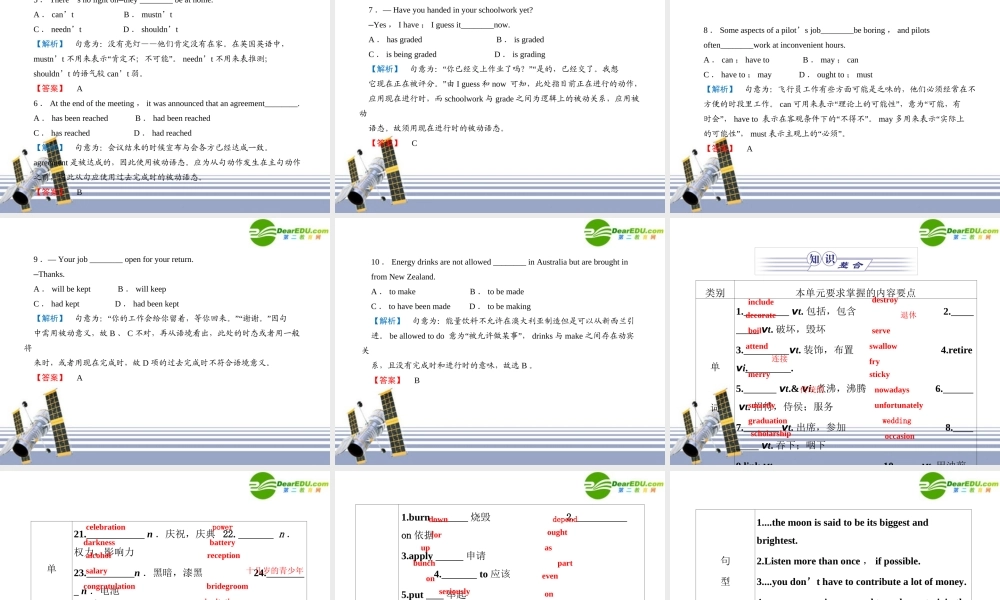一、被动语态1 .被动语态的基本时态变化(1) 一般现在时 am/is/are + done( 过去分词 )Mary is expected to win. 希望玛丽会赢。(2) 现在进行时 am/is/are being + doneA new cinema is being built here.这儿正在兴建一座新的电影院。(3) 一般将来时 will/be going to be + doneA talk of English history will be given next Monday.下周一将要做一个关于英国历史的演讲。(4) 一般过去时 was/were + doneHe was made monitor of the class. 他被选为班长。(5) 过去进行时 was/were being + doneThe wall was being painted by these children yesterday.昨天这些孩子正在涂画这面墙。(6) 现在完成时 has/have been + doneYou have been told many times not to touch the pictures.已经多次告诉你不要动这些照片了。(7) 过去完成时 has been + doneBy the end of the hideandseek , I had been found in the tree.捉迷藏快结束的时候,我在树上被发现了。(8) 情态动词 can/must/should/...be + doneTrees can’t be planted in winter but in spring.冬天不能种树,但春天能。2 .被动语态的使用情况(1) 讲话者不知道动作的执行者或不必说出动作的执行者 ( 这时可省略 by 短语 ) 。My bike was stolen last night. 我的自行车昨晚被偷了。(2) 借助被动的动作突出动作执行者。I was given ten minutes to decide whether I should accept the offer. 我有 10 分钟的时间决定我是否应该接受帮助。(3) 为了更好地安排句子。The wellknown person got on the bus and was immediately recognized by people.( 一个主语就够了 ) 这位名人上了公共汽车,立刻就被人们认出来了。3 .谓语动词的主动形式表示被动意义(1) 英语中有很多动词,如break , catch , clean , drive , lock , open , sell ,read , write , wash 等,当它们用作不及物动词来描述主语特征时,常用其主动形式表达被动意义,主语通常是物。Umbrellas sell best in summer. 雨伞在夏季最好卖。The sweater washes well. 这件毛衣很好洗。(2) 表示“发生、进行”的不及物动词和短语,如: happen , last ,take place , break out , come out , ...




